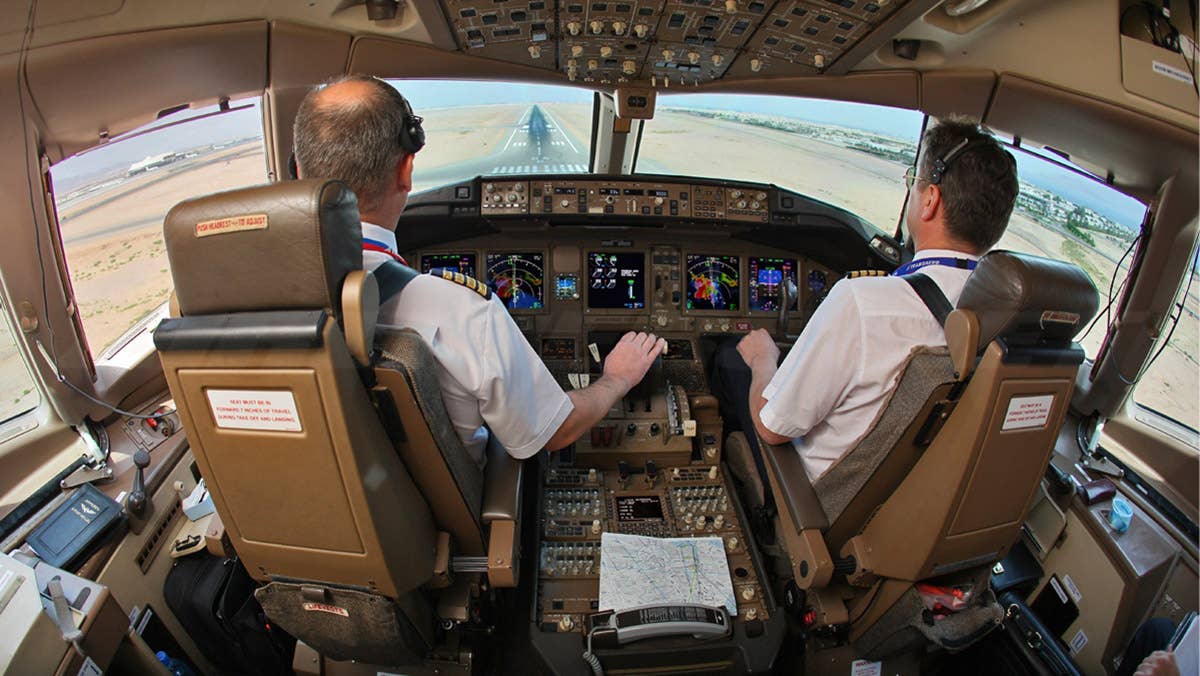
Supporters of the 1,500-hour rule claim it created safer skies in the U.S. Wikimedia Commons
DOT Secretary Elaine Chao last week said the administration might be reconsidering one of the most controversial elements of the 2010 Airline Safety and FAA Extension Act, the provision that requires Part 121 first officers on scheduled air carriers to possess an ATP rating before setting foot in the cockpit during regular revenue service. The bill also dramatically improved pilot training, improved duty and rest provisions and added a pilot record database for airlines to understand more about potential new hires.
Much of the industry has been facing a shortage of pilots in the decade since the 2010 rule became effective. Since the rule was implemented in August 2013, some airlines have cancelled flights and mothballed aircraft due to the lack of pilots to staff the cockpit. The DOT’s Chao said the 1,500-hour rule is contributing to a nationwide pilot shortage.
The 2010 bill was pushed in Congress by legislators supported by families of the victims of a Continental Airlines Dash 8 accident in Buffalo New York. Supporters believe first officers with an ATP certificate would significantly improve airline safety. Supporters also claimed implementing the 1,500-hour rule was responsible for the lack of a fatal accident aboard a U.S Part 121 carrier since it took effect. There is however, no research to prove that the improvement in air safety was anything more than coincidental. Oddly too, both of the pilots aboard the Dash 8 in the Continental accident already possessed more than 1,500 hours of flight time.
The Flight Safety Foundation went on record in March of this year explaining that flight crewmembers should be chosen for their overall qualifications, not simply based on the number of hours in their logbook. The FSF's position did not sit well with legislators who supported the original 2010 bill.
Speaking at a Washington Post forum last week, Secretary Chao was asked if she would be open to seeing the minimum number of flight hours for new pilots reduced below the 1,500-hour standard set by the 2010 law. "You know, I think there needs to be a robust discussion, because obviously we hold the memories of those who are lost in our hearts, and we don't ever want to see an accident like that again or any accident ever occur," Chao responded. "But there is this side effect, unanticipated, corollary impact of reducing the number of pilots, pilots who can very safely fly in our sky. So I think Congress needs to have this discussion, and we will abide by the wishes of Congress."
The Air Line Pilots Association (ALPA) has steadfastly stuck to the story that there is no shortage of pilots, only of pilots willing to work for the traditionally low wages paid by most regional airlines.
An interesting result of the 1,500-hour rule, at least for the pilots able to qualify for the right seat, is the increase in starting wages seen by new Part 121 pilots over the past few years. "Not long ago, first officers at the regional airlines faced starting wages of less than $20,000 annually," according to Louis Smith. "Today, starting wages have risen to more than $50,000 including signing bonuses. Another unintended consequence facing regional carriers is that many of the pilots currently flying in the right seat do not have the flight time required to upgrade to the left seat. That means some carriers have resorted to hiring captains directly off the street." Smith is the president of Henderson Nevada-based Future and Active Pilot Advisors (FAPA).
Flying in the face of legislator's current refusal to revisit the 1,500-hour rule are a number of already existing exceptions that could support Chao's suggestion, including one that offers employment to military-trained aviators with at least 750 total hours of flight time. Another focuses on university graduates with either 1,000 or 1,250 hours of flight time and between 30 and 60 additional hours of academic classes in aviation subjects. No time frame has yet been established by Chao as to when discussions related to pilot qualifications might begin.

Subscribe to Our Newsletter
Get the latest FLYING stories delivered directly to your inbox






